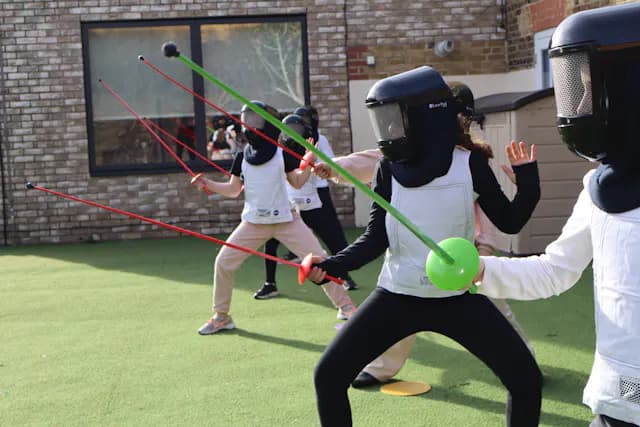
Home Education Workshops - Horniman Museum
Next dates
Sorry, there are no future dates available
Home Education Workshops - Horniman Museum
Pond Dipping & Outdoor Habitats
Tuesday 6 May | 1.30 – 3.00pm | For ages 8–11 (home educated children)
Join a hands-on science session exploring life in the Horniman pond and Nature Trail. Children will use dip nets to carefully collect small aquatic animals and use hand lenses and ID charts to observe and identify them. They'll learn about food chains, aquatic adaptations, and ecosystems, and how these micro-habitats connect with the larger environment.
This interactive session promotes observational skills and scientific thinking, ideal for Key Stage 2 learners.
In case of extreme weather, this session will be replaced with an indoor, taxidermy-based workshop on “Animals and their Habitats,” focusing on adaptations and classification.
Minibeasts
Monday 19 May | 2.45 – 3.30pm | For ages 5–7 (home educated children)
Young children are invited to explore the fascinating world of minibeasts in the Horniman Wildlife Garden. Through guided observation, they’ll search under logs, in flowerbeds, and in leaf litter to find insects, spiders, and other tiny creatures.
They’ll learn what makes an animal a minibeast, where they live, and what they need to survive. This session nurtures curiosity and introduces basic scientific investigation skills in a playful and age-appropriate way.
If the weather is extreme, an indoor version of the workshop will be delivered.
Field Studies Workshop
Friday 13 June | 2.45 – 4.15pm | For ages 12–16 (home educated children)
Designed for older learners, this advanced workshop involves real-world fieldwork across two sites: the Horniman pond and meadow. Participants will conduct scientific investigations using standard fieldwork tools such as quadrats, pooters, and ID guides.
The session focuses on collecting and analysing ecological data to explore biodiversity, environmental change, and interdependence in nature. Learners will practice applying sampling techniques, recording data, and drawing conclusions — key skills for both geography and science curricula at Key Stage 3 and 4.
This is an excellent opportunity to build confidence in scientific methods and deepen understanding of ecosystems.
An indoor version focusing on classification and anatomy via taxidermy will be offered in the event of bad weather.
Contact details
Website:
www.horniman.ac.ukYou may also be interested in

Unicorn Play and Stay
We offer a full day of creative, active and educational play
Groups & Classes

Animal Crossing: New Horizons
(27 other dates)at SEA LIFE London
Events

Let's Leap Holiday Camp @ South Hampstead
(33 other dates)Camden | Running every holiday | 4-11 year olds
Events

Let's Leap Holiday Camp @ Three Bridges Primary School
(33 other dates)Ealing | Running every holiday | 4-11 year olds
Events